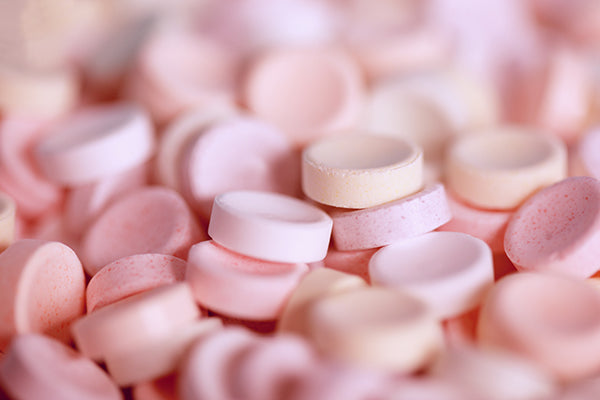
What is ‘Female Viagra’?
When it comes to sexual stimulation aids, there are far more drugs on the market to serve those with penises than those with vaginas. The ‘little blue pill’—a.k.a. Viagra—is so ubiquitous that it’s one of the bestselling prescription medications of all time, and rivaled by many others, like Cialis and Levitra. Today we want to talk about Addyi, the one and only FDA-approved med to treat a lack of sexual desire in those with vaginas.
Originally introduced a few years ago, Addyi (pronounced add-ee) was kind of a flop when it first came on the market. Its maker, Sprout Pharmaceuticals, was sold soon after, and the steep cost was a deterrent for physicians and patients alike. However, the ‘little pink pill’ has recently made a comeback, overseen by Cindy Eckert of The Pink Ceiling incubator, with a new, lower price point and online distribution model via Addyi and Hers (a hip and slick looking partner company of Hims).
The drug, flibanserin, is nonhormonal and mostly intended for people in pre-menopause who experience a drop in their sex drive known as hypoactive sexual desire disorder. People in their twenties and thirties can also be affected, sometimes even more seriously, and can be prescribed the drug, too.
Unlike Viagra, Addyi needs to be taken daily, not as needed before sexual activity. Also unlike Viagra, Addyi doesn’t work by increasing blood flow to the genitals. It actually targets the neurotransmitters in the brain related to sex drive—serotonin, dopamine and norepinephrine—more like an SSRI does. Rather than allowing you physically to have sex, Addyi focuses on increasing your desire for sex, though its exact mechanism is not well understood.
Unfortunately, Addyi’s success rate is up for debate. It also reinforces the idea that 'women's' sexual desire is entirely in their head, rather than physical or hormonal. Studies have shown that regular use leads to maybe one more ‘sexually satisfying’ encounter per month—hardly a dazzling result. Compared with Viagra, which works in a much more obvious way, the makers admit that desire is complicated and many users will not respond well or at all to the drug. It also comes with its fair share of side effects, including insomnia, dizziness, drowsiness, fluctuations in blood pressure and nausea, which not everyone wants to deal with. (You’ll also have to give up grapefruit juice, of all things, which combined with Addyi can lead to low blood pressure and fainting.)
Some researchers think that Addyi is less effective because it’s not a hormonal medication. Imbalances in estrogen, testosterone, and progesterone can have a profound effect on the libido. Besides that, there are many different issues that can result in a lack of sexual desire, from stress to depression and emotional issues with a partner. Ultimately, sexual desire is a complex thing, and for many, there's no magic pill. A nuanced approach is key, and a few toys never hurt anyone, either.
If you experience a serious lack of sexual desire, have tried ‘everything’ and feel desperate for some relief, then there’s no harm in asking your doctor about Addyi. Everyone deserves to experience pleasure, and you are your own best advocate! Because of its interaction with alcohol, doctors have to be specially certified before prescribing, and you’ll have to commit to not drinking in order to take it. It's far from a quick fix, and you should never feel like your sex drive 'should' be a certain way, everyone is different.
Have you or would you take Addyi? Let us know in the comments!



